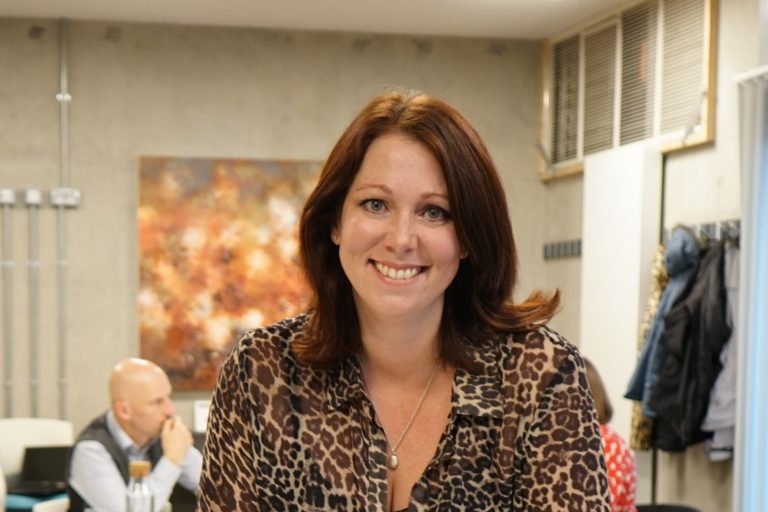- June 25, 2020

Collaboration in Action: Learning from Impact Innovators in Sustainability
We’re obsessed with Insurance Innovation — what drives, nurtures, kills it — and we’re always looking to share insights from outside GreenKite. We’re delighted that our second Guest Blog comes to you from Emma Mee, Programme Manager for Allia, the Cambridge-based group supporting impact ventures since 1999. “This Blog combines two big issues”, says Shân Millie, our Lead Associate, Innovation & Customer: “First, insights on how established firms can make the most of working with smaller, challenger Tech firms; second, Insurance firms working out how to grasp the massive opportunities posed by Climate and the Transition Economy.”
Read on for Emma’s thoughts on what #BuildingBetter means, how big and small can learn from each other and maximise partnering, and for more on the companies in Allia’s The Future 20 cohort.
Why not read our first Guest Blog with Kate Bohn of Lloyds Banking Group where she shares her Top 10 Tips for start-ups and scale-ups to thrive?
Shân: Emma, first off, what is an ‘impact venture’?
Emma: An impact venture is like any other start-up, except the very core of their mission is to have a positive impact on people, planet or place. As Programme Manager for Allia, I’m working with twenty of some of the best impact start-ups by supporting them through our The Future 20 programme. The firms in this cohort range from medical devices, homeless charities, pensions apps and AI and satellite technologies for global fisheries. Whether they aim to benefit society or improve the environment (often both) I believe, businesses created with impact at the heart of what they do are the only sustainable business models for the future.
| Company | Website | Impact |
| Sutrue | www.sutrue.com | Automated suturing devices for minimally invasive surgery, including robotic and endoscopic surgery |
| Greater Change | www.greaterchange.co.uk | Providing opportunities for homeless people through empathetic crowdfunding |
| Camnexus | www.camnexus.io | IoT sensors and data management for water and environmental management |
| Disability Horizons | www.disabilityhorizons.com | An online forum to help disabled people live life to the full |
| Appt Health | www.appt-health.co.uk | Boosting preventative healthcare across demographic divides, whilst reducing NHS cost |
| Been London | www.been.london | Aspirational bags and accessories made from entirely recycled and waste materials |
| Cogz | www.cogz.co | A B2B market place for surplus food and reducing food waste |
| Nemi Teas | www.nemiteas.com | Empowering refugees and high-end environmental tea company |
| Ocean Mind | www.oceanmind.global | Satellite and AI to empowering global fisheries compliance |
| Play Physio | www.play.physio | Helping kids with cystic fibrosis live healthier, happier lives through gamified treatment technology |
| Supply Change | www.supplychange.co.uk | Connecting public sector buyers to social enterprises |
| Twipes | www.twipes.eu | Truly flushable and eco-friendly wet wipes |
| Wearth | www.wearthlondon.com | Online shopping platform for all things eco and sustainable |
| Work for Good | www.workforgood.co.uk | Enabling more charitable giving from SME businesses across the UK |
| Phycofeeds | www.phycofeeds.com | Bio oil and feedstocks from waste and sunshine |
| Banjo Robinson | www.banjorobinson.com/ | Improving literacy and global awareness for primary school children |
| Blue Tap | www.bluetap.co.uk | Improving water quality of the developing world through cheap and easy chlorine injectors |
| Maji | www.maji.io | Ensuring everyone has a suitable pension on which to retire |
| Padlock | www.padlock.digital | Providing flexible jobs and training to lone parents in cyber security |
Shân: You’ve spent much of your career in Sustainability, way before it made a business agenda item as it finally is now. Real progress depends on systematic collaboration between established and fledgling firms on a gigantic scale, right?
Emma: Yes! I started off my career helping big business get to grips with climate strategies, improving supply chains and all those other issues so often relegated to a CSR report that no-one reads! It was tough going. I turned to the ‘little guys’ for solutions — the innovators, the disruptors, the challengers — and soon discovered I’d swapped one set of problems for another.
What is really needed, and consistently sought by founders, is a real partnership. I think start-ups have the characteristics we need to innovate impact fully in key sectors such as energy, climate change mitigation, food production and agri-Tech, poverty and inequality. They:
(1) work fast, adapt and change direction quickly but ultimately aim to create impact on an external and long-term mission
(2) unearth new markets, or create delivery models that meet market needs quicker, cheaper and safer
(3) can innovate fast, explore cross-sectoral opportunities, and challenge the status quo
(4) have new ideas, unrivalled passion and energy that can enthuse entire workforces and reinvent market perceptions
On the debit side, they lack experience and expertise, don’t have the access to the market enjoyed by incumbent corporates, and usually exist on threadbare finances, and over-stretched teams.
Large corporates are intrinsically based on short-term results that actually benefit only a few, and although they often keen to adapt, they are slow and risk averse. However, they know their markets, have the greatest experience in their sector and navigating through regulatory pathways, and can open doors with partners and supply chains.
There’s a win-win scenario in there, we don’t see that often enough. Start-ups are either ‘swallowed up’ by the incumbent and the impact amounts to very little, or the partnership breaks up and neither party has felt they got good value for their money or effort.
Shân: For you, working our way out of Covid lockdown, making #BuildingBetter a reality, means that business must serve the needs of society while protecting, even regenerating, the planet. Cracking the collaboration code, for large and small firms is essential, right?
Emma: Spot-on. I’m not sure any one person can be an expert on this, but here’s a list of six problems I’ve seen repeatedly frustrate partnering:
(1) Speed. Like heartbeats in an elephant and a mouse, pace is extraordinarily different between corporates and start-ups. This affects everything, from perceptions of progress and decision making, to budgetary controls and hiring processes. Start-ups just can’t afford to be that patient!
(2) Communication. The start-up can sometimes be star-struck rather than exploring how to communicate well. There are often confusions on the perceptions of scale, speed and quality. Even conversations around when something is considered ‘ready’ is an issue — it’s usually NOT the corporate being the stickler for perfection, as you might assume!
(3) Process. Overdoing constraints and bureaucracy in the process is often ‘death by admin’. Start-ups are extremely restricted on manpower and time, so can be easily sunk by reporting mechanisms, meetings, milestones, and the like.
(4) Risk. Start-ups have a high-risk threshold, and need to be given space to explore and fail so avoid budgets dependent on incremental successes. Conversely, founders with strong scientific or academic backgrounds, but without commercial experience, will be used to achieving very high levels of confidence in their testing — far higher that many corporates work with or expect.
(5) Involvement. There will be times when the members involved spend some significant time together, such as to get things started, but generally the start-up needs to be left alone a lot. Corporates need to avoid giving in to the desire to meddle, or prescribe their own solutions, dressed-up as mentoring.
(6) Culture. The really tricky one. Mis-aligned culture manifests as protectionism, mis-trust, or a lack of engagement that limits the partnership ever taking off. Among all the conversations around IP, processes and milestones, the senior team on both sides need to develop a positive, trusting partnership that can unleash the creativity and innovation, supported by the expertise and resources that they need.
Shân: It’s both heartening and disheartening to see this list — anyone working on internal or external Innovation in Insurance will recognise it!
Emma: Yes — it’s not news, working with start-ups can be hard. It’s risky and sometimes uncomfortable, but there is one resource they do have a surplus of: passion. They are building their businesses with it, and it’s completely contagious.
I want my founders to succeed because they demonstrate a drive and relentless enthusiasm for what they are trying to do. I really want those with the resources, expertise and a similar passion — the incumbent firms — to join forces, so that business can ‘be the change’ that we all need to see in the world.





